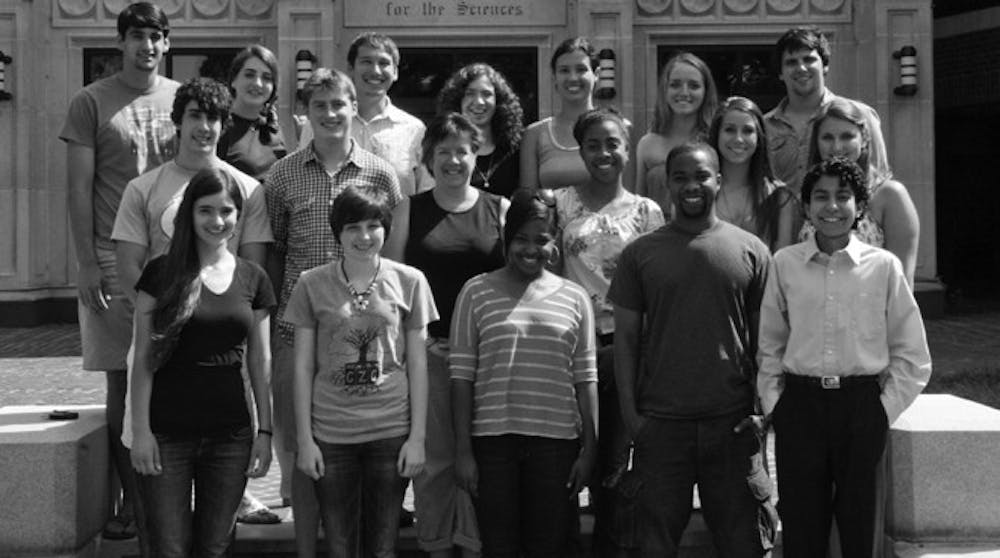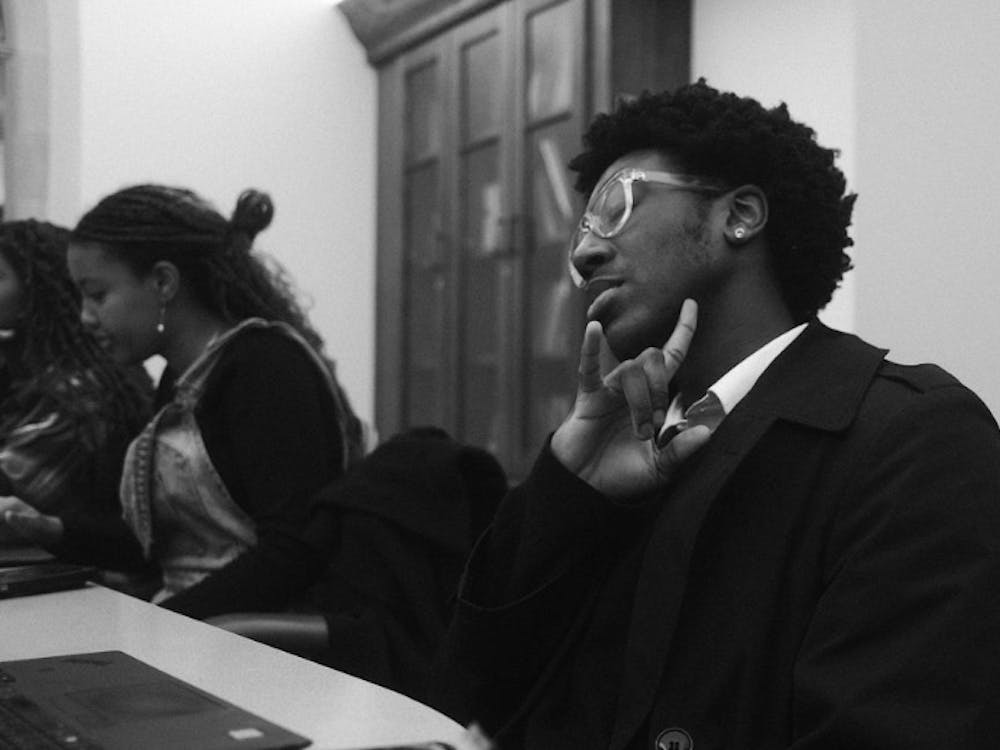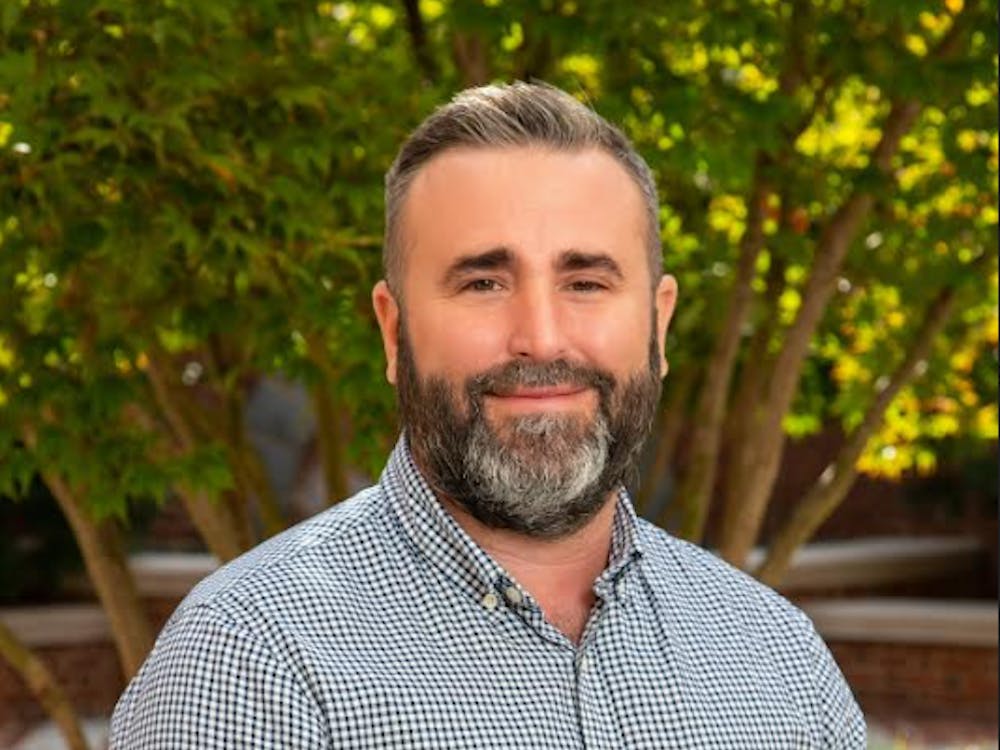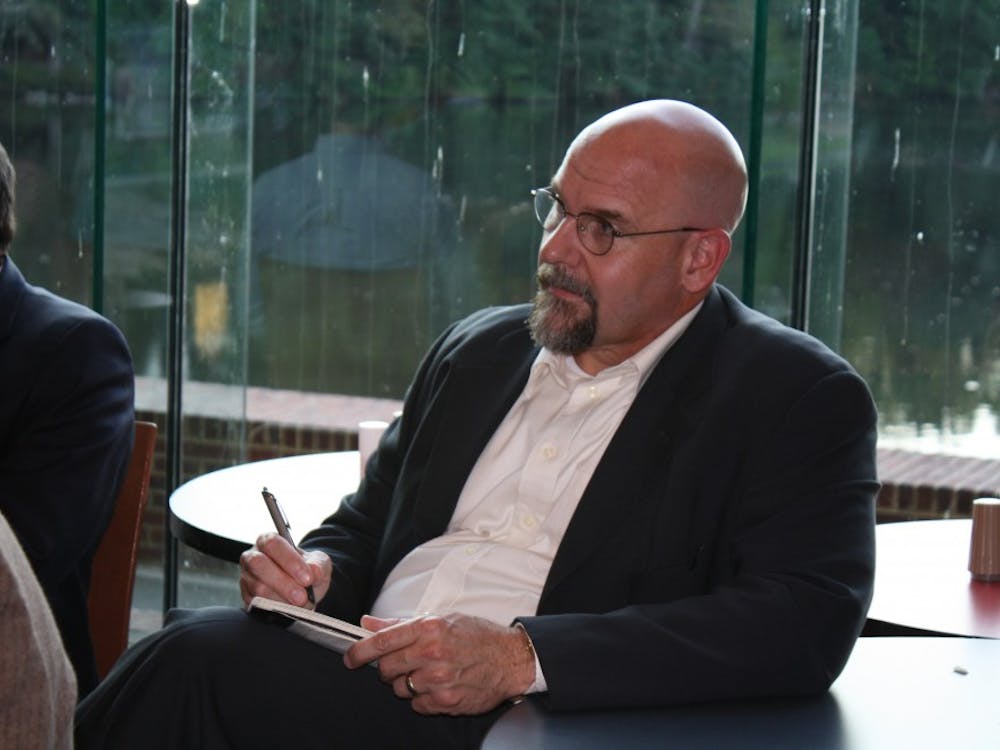Research creates both a challenging intellectual environment and a social community for students who are a part of Carol Parish's molecular research team.
Parish, a Richmond chemistry professor, recently received a three-year, $290,000 grant from the National Science Foundation for molecular research. The project is a chemistry analysis of diradicals, which are molecules with unpaired electrons that are important to cancer drugs, optics and electronics, Parish said.
Parish described herself as a quantum mechanist and said diradicals represent the last frontier in quantum mechanics.
"I wanted to do something difficult," she said. "All the easy stuff had been done."
Through this research, the team hopes to learn how electrons in a polyradical react with each other and about their basic molecular behavior, she said.
Freshman Shannon Houck contributed to the project by studying the basic mechanics of reactions in diradical molecules. She said the goal was to cyclize these molecules in order to kill the cancer cells.
Cyclizing is the formation of a ring in the chemical compound. The problem is that these diradical molecules are not controlled and can hurt normal cells, so the goal is to only cyclize the molecules in cancer cells, she said.
Parish said one of the main reasons she had applied for the grant was to promote undergraduate research. Nineteen students make up the research team, ranging from high school students to those with a bachelor's degree and about 15 current undergraduates in the middle, she said.
Most students on the research team got involved by meeting Parish through coursework, and others were recommended she said. Parish said she enjoyed working with her students because they were smart, creative, had strong work ethics, and made significant contributions to the research.
Sophomore David Stevens got involved with the research project through a chance meeting with Parish, he said. He contributed to the research by studying the maturity of HIV cells. He uses a computer to simulate how a protein interacts with itself.
"I like it because, to me, there is a greater meaning to the project. . . I'm working toward a cause," he said.
Stevens said one reason he enjoyed working with Parish was her sense of humor.
Enjoy what you're reading?
Signup for our newsletter
Houck became involved in the project through a recommendation from a teacher at the North Carolina School of Science and Math, where she had attended. She enjoyed working on the research team during the summer, particularly for the lab bonding days, during which the group spent time together away from the research, Houck said.
Contact staff writer Rebecca Wilson at rebecca.wilson@richmond.edu
Support independent student media
You can make a tax-deductible donation by clicking the button below, which takes you to our secure PayPal account. The page is set up to receive contributions in whatever amount you designate. We look forward to using the money we raise to further our mission of providing honest and accurate information to students, faculty, staff, alumni and others in the general public.
Donate Now



